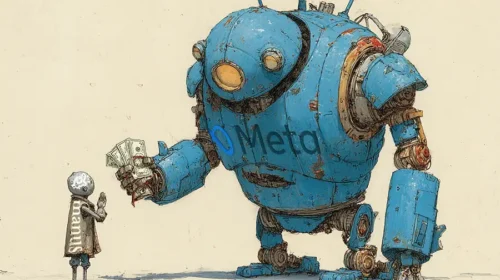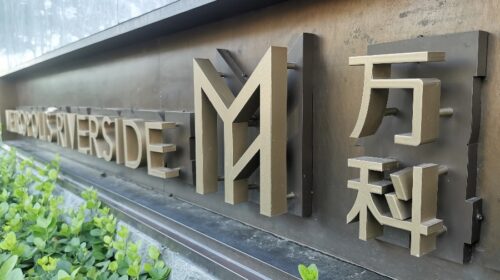Tuya accelerates AI strategy with 93% of shipped products featuring full AI integration

The global cloud platform service provider is taking extensive steps to incorporate AI into tools for its developers and the hardware and apps they create
Key Takeaways:
- Tuya said about 93% of the products shipped for use on its developer platform were equipped with AI capabilities at the end of June
- The company has developed a two-pronged strategy of using AI to assist its developers, and to improve their products connected to its platform
By Doug Young
As the world charges into the artificial intelligence (AI) era, global cloud platform service provider Tuya Inc. (TUYA.US; 2391.HK) is adapting to a new reality that acknowledges the central role AI will play in cutting-edge, internet-connected devices of the future. The company talked up its growing focus on the newer artificial intelligence of things (AIoT) in its latest earnings report, highlighting how it’s using AI to assist its developers.
Tuya gave its AI pep talk as it reported continued progress for its financial health. The company reported its revenue rose 14.7% in the first half of this year to $155 million, up from $135 million in the year-ago period.
Revenue from its core platform-as-a-service (PaaS) business, which makes up about two-thirds of the total, rose by a similar 12% to $112 million from about $100 million a year earlier. Its premium PaaS customers, which account for nearly 90% of PaaS revenue, rose to 285 in the 12 months to June from 280 in the previous 12-month period.
The company’s operating margin for the first half of 2025 was nearly breakeven, representing a big improvement year-on-year, showing it is on the cusp of becoming profitable on a GAAP operating basis. The company is already profitable and has relatively solid margins on a non-GAAP operating basis, which excludes expenses like stock-based compensation costs.
On the bottom line, Tuya reported a net profit of $23.6 million for the first half of the year, reversing a $400,000 loss a year earlier, making it likely the company will post a record profit for 2025 after first becoming profitable last year. It also cautioned that U.S. tariffs are creating uncertainties for some of its clients but forecast those pressures should ease in the fourth quarter as the situation begins to settle.
Tuya’s core business revolves around its PaaS, which hosts a wide range of apps, many of those connected to real-world devices like home appliances, toys, home safety systems and even birdfeeders. Such devices use real-time web connections, increasingly with the help of AI, to do things like allowing toys to interact with children in real time, or allow home-based safety systems to identify movements in and around a house and warn if they look suspicious. And the company is increasingly focused on AIoT, as more of the apps and devices using its platform take advantage of AI to incorporate increasingly sophisticated capabilities.
Growing AI penetration
According to a report by Global Market Insights, the global AI hardware market is expected to reach about $296.3 billion by 2034, growing 18% annually from 2025 to 2034. That strong growth is being driven by the increasing adoption of AI into hardware, a trend that is expected to accelerate.
Meanwhile, Tuya Smart stated that about 93% of the products deployed by its platform were equipped with AI capabilities at the end of June. Additionally, Tuya’s developer platform delivered AI agent services that supported 150 million AI interactions per day globally, covering areas such as translation, healthcare, energy management, pet care, toys and AI robotics.
The company has two main focuses when it comes to AI, said Tuya Smart co-founder, CFO and COO Alex Yang. The first is making its tools easier to use for its huge base of developers, which it is doing through its self-developed AI agent development platform.
Second, but equally important, Tuya is helping its developers to incorporate more AI into their hardware and applications to improve their performance and commercialize more quickly. For example, it allows developers to integrate popular models like ChatGPT, DeepSeek, Qwen and Gemini into their products, allowing for functions like text and image generation.
“Tuya has always been at the forefront of AI hardware and application deployment, and we remain fully committed to advancing the AIoT ecosystem,” Yang said on Tuya’s earnings call. “Our goal is to continually lower the development threshold for AI hardware products and promote their broader AI innovation and adoption.”
Strengthening the AI Ecosystem
As of June, Tuya’s registered developer base spanned 200 countries and regions, totaling over 1.51 million, up roughly 15% from 1.32 million at the end of 2024.
To further expand its developer ecosystem, Tuya has lowered barriers to entry through its AI developer platform. The initiative includes TuyaOpen, the company’s open-source development framework that supports mainstream open-source software and hardware ecosystems, enabling developers to port and deploy projects to chips or development boards.
Beyond internal efforts, Tuya has also been building ties with external developer communities, hosting online and offline “hackathons” to drive AI adoption. In the first half of 2025, such events produced hundreds of AI hardware prototypes with commercial potential. It cited the Otto Robot project as a standout among such events, using agents in marketing and promotion while utilizing Tuya’s T5 development board. Tuya also partnered with the DFRobot community to introduce AI hardware development into university and embedded systems courses, giving students hands-on experience with AI applications.
The company is intensifying its AI co-development efforts, actively seeking high-potential AI hardware investments to bring promising projects to market.
“Tuya’s management affirmed a continued commitment to AI-driven product and ecosystem expansion,” SeekingAlpha, a stock-buying community, wrote in a note summarizing the tone of Tuya’s latest report. “The ongoing strategic focus remains on deepening customer relationships, accelerating commercialization of AI hardware, and maintaining robust operating leverage, positioning Tuya to navigate near-term volatility while pursuing long-term growth in the smart device sector.”
The Bamboo Works offers a wide-ranging mix of coverage on U.S.- and Hong Kong-listed Chinese companies, including some sponsored content. For additional queries, including questions on individual articles, please contact us by clicking here.
To subscribe to Bamboo Works free weekly newsletter, click here





